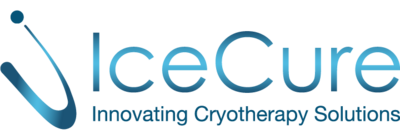
IceCure Medical is setting new standards in minimally invasive cryotherapy for women’s health and interventional oncology. Our FDA-cleared and CE-marked ProSense® Cryoablation System utilizes the power of liquid nitrogen to destroy tumors by freezing them to ultra-low temperatures for optimal tumor destruction.
Company's Solutions
For women with breast tumors, the ProSense® System provides patients with a safe, fast, in-office cryoablation procedure with excellent cosmetic results. ProSense® has received FDA clearance for the treatment fibroadenomas and in 2021 was granted FDA Breakthrough Device Designation for the treatment of patients with T1 invasive breast cancer and/or patients not suitable for surgical alternatives for the treatment of breast cancer.
IceCure is conducting the ICE3 Clinical Trial, the largest multi-center trial for cryoablation of small, low-risk breast cancer. The latest interim analysis shows promising results with 96.91% of patients who are recurrence free.
IceCure’s ProSense Cryoablation System utilizes liquid nitrogen to generate ultra-cold temperatures quickly to create large lethal zones for maximum efficacy in tumor destruction. The system achieves a sharp temperature decrease at the start of the freeze step and provides consistently stable freezing temperatures throughout the procedure. ProSense is a proven solution for the treatment of benign and malignant breast tumors, renal, lung, liver, and bone cancers.
Prominent Case Study
ICE3 Clinical Trial: Revolutionizing Treatment for Early-Stage Breast Cancer
The ICE3 clinical trial stands as the largest controlled multilocation study ever conducted for liquid nitrogen (LN2)-based cryoablation, specifically targeting small, low-risk, early-stage malignant breast tumors without subsequently removing them. Starting in 2014, this groundbreaking trial has successfully enrolled 206 patients across 19 prestigious hospitals and medical centers in the United States, including Columbia University Medical Center and Mount Sinai Beth Israel.
Key Findings:
Recurrence-Free Rate: As of July 2022, an astounding 96.91% of patients enrolled in the ICE3 trial remained recurrence-free. Out of the 194 eligible patients, a remarkable 188 individuals showed no signs of tumor recurrence, demonstrating the exceptional efficacy of the LN2-based cryoablation approach.
Safety:
The study reported a remarkable 100% absence of significant device-related adverse events or complications, further emphasizing the safety and minimally invasive nature of LN2-based cryoablation.
Doctor Satisfaction:
The ICE3 trial showcased the unwavering satisfaction of medical professionals participating in the study. Physicians reported a resounding 100% satisfaction rate with the cosmetic outcomes achieved through LN2-based cryoablation. The procedure yielded no scarring or alterations in breast shape and size, leading to improved patient outcomes and overall satisfaction.
Patient Satisfaction:
Echoing the positive sentiment of doctors, patients participating in the ICE3 trial also expressed their overwhelming satisfaction. 100% of patients reported being highly satisfied with the cosmetic results.
Conclusion:
The ICE3 clinical trial is setting a new standard in the treatment of small, low-risk, early-stage malignant breast tumors. With its impressive recurrence-free rate of 96.91%, coupled with a flawless safety record, doctors and patients alike have embraced LN2-based cryoablation as a groundbreaking alternative to traditional surgical interventions. The study's outstanding cosmetic outcomes, backed by 100% doctor and patient satisfaction rates, solidify LN2-based cryoablation as a safe, effective, and patient-centered treatment option. The findings from the ICE3 trial offer renewed hope for individuals facing breast cancer and pave the way for a future where innovative therapies redefine the landscape of cancer care.


